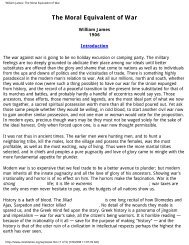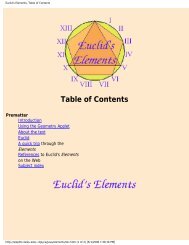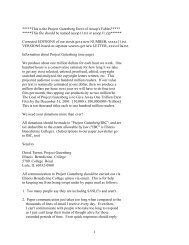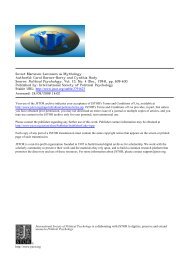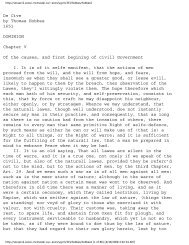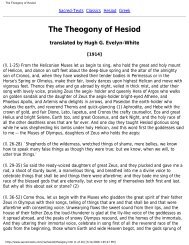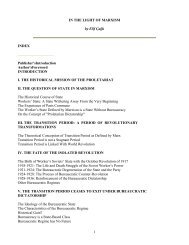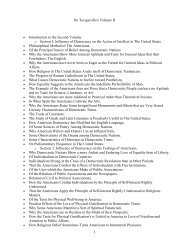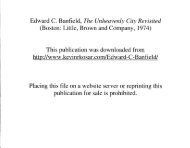Project Gutenberg Etext of The Large Catechism, by Martin Luther
Project Gutenberg Etext of The Large Catechism, by Martin Luther
Project Gutenberg Etext of The Large Catechism, by Martin Luther
You also want an ePaper? Increase the reach of your titles
YUMPU automatically turns print PDFs into web optimized ePapers that Google loves.
forgive sin without and even before our prayer (for He has given us the<br />
Gospel, in which is pure forgiveness before we prayed or ever thought<br />
about it). But this is to the intent that we may recognize and accept<br />
such forgiveness. For since the flesh in which we daily live is <strong>of</strong> such<br />
a nature that it neither trusts nor believes God, and is ever active in<br />
evil lusts and devices, so that we sin daily in word and deed, <strong>by</strong><br />
commission and omission <strong>by</strong> which the conscience is thrown into unrest,<br />
so that it is afraid <strong>of</strong> the wrath and displeasure <strong>of</strong> God, and thus<br />
loses the comfort and confidence derived from the Gospel; therefore it<br />
is ceaselessly necessary that we run hither and obtain consolation to<br />
comfort the conscience again.<br />
But this should serve God's purpose <strong>of</strong> breaking our pride and keeping<br />
us humble. For in case any one should boast <strong>of</strong> his godliness and<br />
despise others, God has reserved this prerogative to Himself, that the<br />
person is to consider himself and place this prayer before his eyes,<br />
and he will find that he is no better than others, and that in the<br />
presence <strong>of</strong> God all must lower their plumes, and be glad that they can<br />
attain forgiveness. And let no one think that as long as we live here<br />
he can reach such a position that he will not need such forgiveness. In<br />
short, if God does not forgive without ceasing, we are lost.<br />
It is therefore the intent <strong>of</strong> this petition that God would not regard<br />
our sins and hold up to us what we daily deserve, but would deal<br />
graciously with us, and forgive, as He has promised, and thus grant us<br />
a joyful and confident conscience to stand before Him in prayer. For<br />
where the heart is not in right relation towards God, nor can take such<br />
confidence, it will nevermore venture to pray. But such a confident and<br />
joyful heart can spring from nothing else than the [certain] knowledge<br />
<strong>of</strong> the forgiveness <strong>of</strong> sin.<br />
But there is here attached a necessary, yet consolatory addition: As we<br />
forgive. He has promised that we shall be sure that everything is<br />
forgiven and pardoned, yet in the manner that we also forgive our<br />
neighbor. For just as we daily sin much against God and yet He forgives<br />
everything through grace, so we, too, must ever forgive our neighbor<br />
who does us injury, violence, and wrong, shows malice toward us, etc.<br />
If, therefore you do not forgive, then do not think that God forgives<br />
you; but if you forgive, you have this consolation and assurance, that<br />
you are forgiven in heaven, not on account <strong>of</strong> your forgiving, -- for<br />
God forgives freely and without condition, out <strong>of</strong> pure grace, because<br />
He has so promised, as the Gospel teaches, -- but in order that He may<br />
set this up for our confirmation and assurance for a sign alongside <strong>of</strong><br />
the promise which accords with this prayer, Luke 6, 37: Forgive, and ye<br />
shall be forgiven. <strong>The</strong>refore Christ also repeats it soon after the<br />
Lord's Prayer, and says, Matt. 6,14: For if ye forgive men their<br />
84



